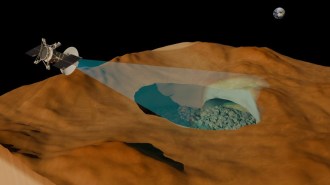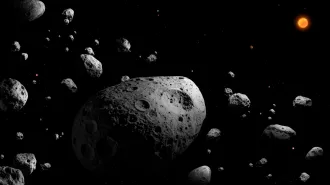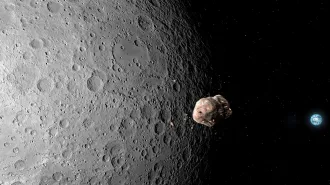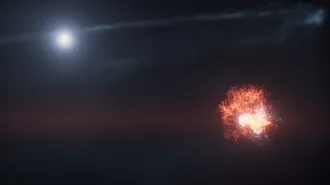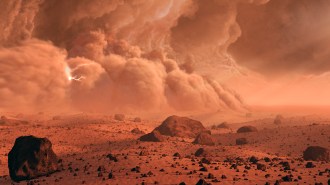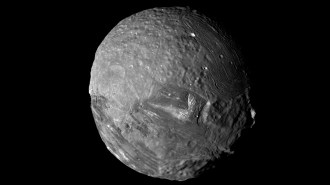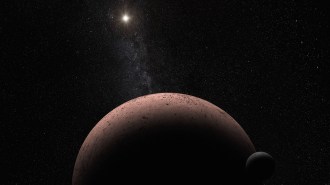Organic molecules in an ancient Mars meteorite formed via geology, not alien life
Carbonation and serpentinization may have generated organics on Mars for billions of years
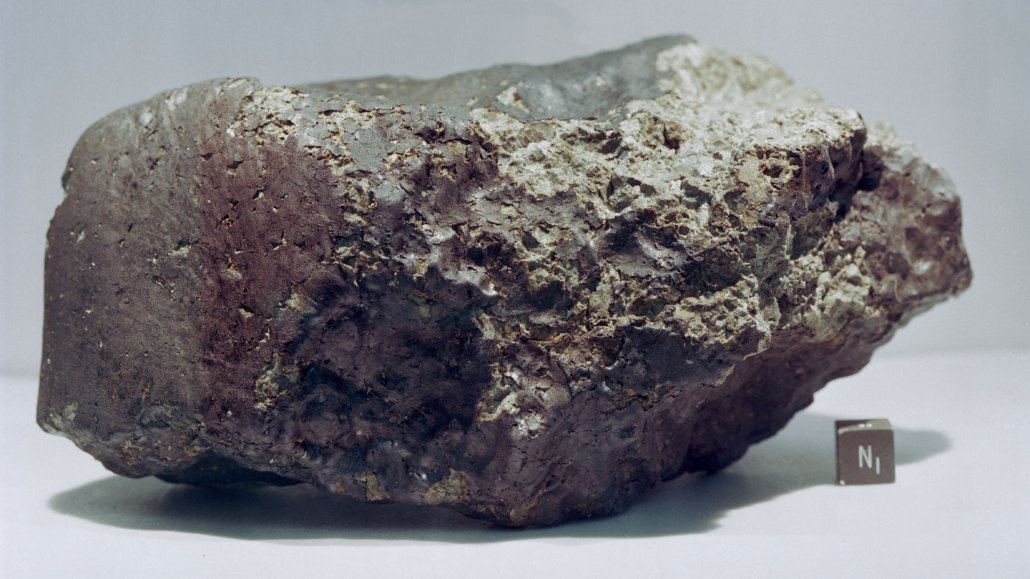
The ancient Martian meteorite, ALH84001, discovered in Antarctica in 1984, contains organic molecules that researchers now suggest were formed by geologic processes, rather than by alien organisms.
NASA
When researchers in 1996 reported they had found organic molecules nestled in an ancient Martian meteorite discovered in Antarctica, it caused quite a buzz. Some insisted the compounds were big-if-true evidence of life having existed on Mars (SN: 3/8/01). Others, though, pointed to contamination by earthly life-forms or some nonbiological origins (SN: 1/10/18).
Now, a geochemical analysis of the meteorite provides the latest buzzkill to the idea that alien life inhabited the 4.09-billion-year-old fragment of the Red Planet. It suggests instead that the organic matter within probably formed from the chemical interplay of water and minerals mingling under Mars’ surface, researchers report in the Jan. 14 Science. Even so, the finding could aid in the search for life, the team says.
Organic molecules are often produced by living organisms, but they can also arise from nonbiological, abiotic processes. Though myriad hypotheses claim to explain what sparked life, many researchers consider abiotic organic molecules to be necessary starting material. Martian geologic processes could have been generating these compounds for billions of years, the new study suggests.
“These organic chemicals could have become the primordial soup that might have helped form life on [Mars],” says Andrew Steele, a biochemist from the Carnegie Institution for Science in Washington, D.C. Whether life ever existed there, however, remains unknown.
Steele and his colleagues initially sought to study how ancient Martian water may have morphed minerals in the meteorite, known as ALH84001. The team used microscopic and spectroscopic imaging methods to analyze tiny slivers from parts of the meteorite that appeared to have reacted with water.
In their samples, the researchers discovered by-products of two chemical reactions — serpentinization and carbonation — which occur when underground fluids interact with minerals and transform them. Amid these by-products, the researchers detected complex organic molecules. Based on the identification of these two processes, the team concluded the organics probably formed during the reactions, just as they do on Earth.
Analysis of the relative amounts of different types of hydrogen in the organic matter supported the notion that the organic compounds developed while on Mars; they didn’t emerge later on from Earth’s microbes or materials used in the team’s experiments.
Altogether the findings suggest that at least two geologic processes probably produced organic matter on the Red Planet, says Mukul Sharma, a geochemist at Dartmouth College who was not involved in the study.
The study is not the only to propose that organic material in Martian rocks could form without life. Researchers attributed the formation of complex organics in the 600-million-year-old Tissint meteorite, also from Mars, to chemical interactions of water and rock (SN: 10/11/12).
However, ALH84001 is one of the oldest Martian meteorites ever found. The new findings, when considered alongside other discoveries of Martian organic matter, suggest that abiotic processes may have been generating organic material across the Red Planet for much of its history, Sharma says. “Nature has had a huge amount of time on its hands to produce this stuff.”
Though the work doesn’t bring us any closer to proving or disproving the existence of life on Mars, identifying abiotic sources of organic compounds there is crucial for the search, Steele explains. Once you’ve figured out how Martian organic chemistry acts without meddlesome life, he says, “you can then look to see if it’s been tweaked.”
